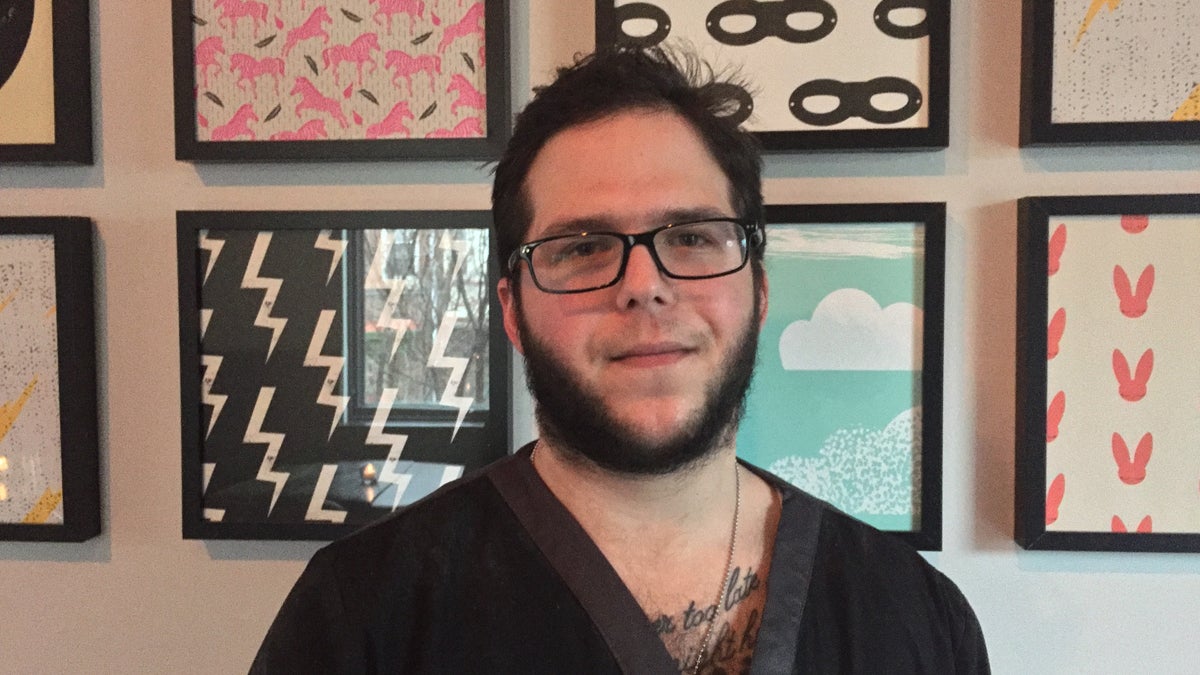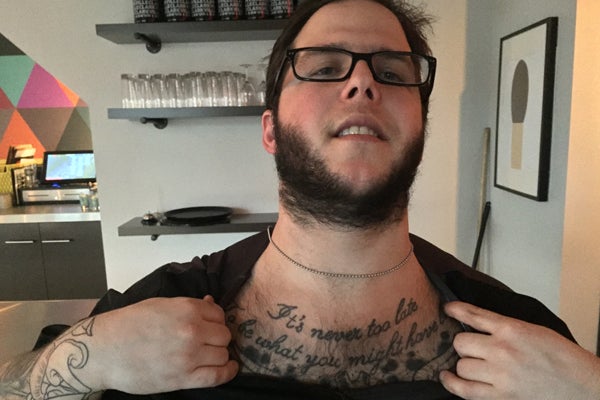‘It’s never too late’ to start again; life after addiction
Listen
Cory Cohen works as a cook at Clarkville
Cory Cohen’s slide into addiction is one that echoes all over the country.
Cohen is 22 years old, grew up in the suburbs of Philadelphia, and was prescribed opioids after a wrestling injury when he was 17.
“It was the best feeling I had ever had,” he said. Cohen became addicted. When his prescriptions ran out, he started to buy the painkillers on the street. Eventually, he switched to heroin because it was cheaper.
He dropped out of community college, but maintained an apartment and a job as a cook in a restaurant.
“As long as I had my job, nobody could call me a full-blown addict,” he said.
Cohen has a stocky build, he has dark hair and lots of tattoos.
He describes addiction as the most strenuous full-time job he ever had. “I was working 14 hours in the restaurant industry and 24 hours to maintain my addiction. I was physically exhausted and emotionally shut off to everything.”
Cohen was arrested several times, and eventually started seeing an addiction therapist, but he was still using drugs.
Eventually, he felt that he had to make a serious decision about getting sober, or he would end up in jail, or dead.
He loved working in restaurants, so he arranged to move into a recovery house that allowed him to continue working while getting sober.
“I decided to stop using a day before I moved into the recovery house,” he recalled. I illegally obtained suboxone, which helps with withdrawal symptoms, and I took it one day and then decided I shouldn’t be doing that.”
Instead, Cohen dealt with feeling sick as a dog as the drugs slowly left his system. “I didn’t sleep for a good three weeks, had terrible stomach aches, had terrible nausea. I felt that this was my punishment. I got myself into this situation and I will deal with this and come out on the other end.”
Cohen says the recovery house was a very supportive environment; everybody living there was about his age, and there was a solid feel of camaraderie.
He stayed there for three months.
Cohen is still seeing a therapist every week, as well as a psychiatrist who helps him deal with symptoms of depression. He goes to meetings. When he feels anxious or depressed, he calls friends who come and hang out with him.
“It’s hard to sneak away and do bad things if I have somebody who is holding me accountable, who is sitting right across from me.”
And every time Cohen looks in the mirror, he sees a reminder of where he’s been and where he wants to go. He has a tattoo across his chest that reads “It’s never too late to be what you might have been.”

Cohen shows his tattoo. (Maiken Scott/WHYY)
He got this tattoo when he was 19, and still actively using drugs. It didn’t really mean anything back then. But one day, about three months into his sobriety, he looked at himself in the mirror after getting out of the shower.
“During my addiction I didn’t, and couldn’t, look at myself in the mirror. And then seeing this tattoo on my chest when I was sober, it was as if someone – God, a higher power – knew this was going to happen to me. I feel as though I’m becoming the person that I was supposed to be.”
WHYY is your source for fact-based, in-depth journalism and information. As a nonprofit organization, we rely on financial support from readers like you. Please give today.






